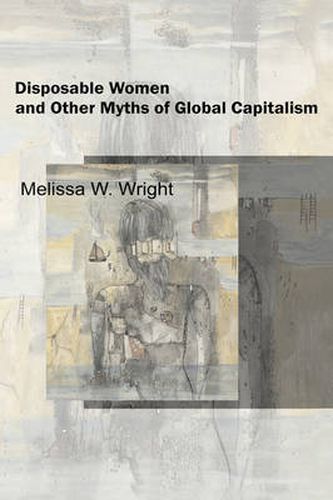Readings Newsletter
Become a Readings Member to make your shopping experience even easier.
Sign in or sign up for free!
You’re not far away from qualifying for FREE standard shipping within Australia
You’ve qualified for FREE standard shipping within Australia
The cart is loading…






Everyday, around the world, women who work in the Third World factories of global firms face the idea that they are disposable. Melissa W. Wright explains how this notion proliferates, both within and beyond factory walls, through the telling of a simple story: the myth of the disposable Third World woman. This myth explains how young women workers around the world eventually turn into living forms of waste. Disposable Women and Other Myths of Global Capitalism follows this myth inside the global factories and surrounding cities in northern Mexico and in southern China, illustrating the crucial role the tale plays in maintaining not just the constant flow of global capital, but the present regime of transnational capitalism. The author also investigates how women challenge the story and its meaning for workers in global firms. These innovative responses illustrate how a politics for confronting global capitalism must include the many creative ways that working people resist its dehumanizing effects.
$9.00 standard shipping within Australia
FREE standard shipping within Australia for orders over $100.00
Express & International shipping calculated at checkout
Everyday, around the world, women who work in the Third World factories of global firms face the idea that they are disposable. Melissa W. Wright explains how this notion proliferates, both within and beyond factory walls, through the telling of a simple story: the myth of the disposable Third World woman. This myth explains how young women workers around the world eventually turn into living forms of waste. Disposable Women and Other Myths of Global Capitalism follows this myth inside the global factories and surrounding cities in northern Mexico and in southern China, illustrating the crucial role the tale plays in maintaining not just the constant flow of global capital, but the present regime of transnational capitalism. The author also investigates how women challenge the story and its meaning for workers in global firms. These innovative responses illustrate how a politics for confronting global capitalism must include the many creative ways that working people resist its dehumanizing effects.